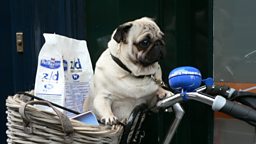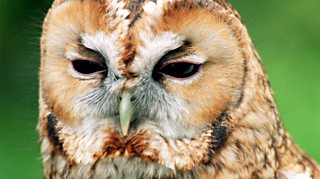12 wonderful words we should all be using
With many of us texting and typing our way through the day, it’s tempting to use the simplest words available to get our point across. But doesn’t this seem a shame when we consider how much choice there really is?
The English language is reputed to be the largest in the world, rich with unusual words that make wonderful additions to anyone’s vocabulary and, quite frankly, deserve to be bandied around more.
If you want to impress colleagues in a meeting, friends or family at a gathering, or a new beau on a date, try slipping these lesser-spotted words into your conversations to sound cleverer.
1. Jirble
If you’ve ever made a round of teas at work, then realised the tray’s gone AWOL and attempted to carry five full mugs down the stairs, you will almost certainly have jirbled before. It means to spill a liquid by shaking or unsteady moving of the vessel. The origin of the word is thought to be onomatopoeic, with the word jirble being imitative of the sound of sloshing liquid.
In a sentence: “I jirbled gin and tonic all down my top as I sashayed on to the dancefloor.”
2. Bumbershoot
This is a playful name for an umbrella, believed to be derived from a combination of the words umbrella and parachute, at some point in the 19th Century.
In a sentence: “It looks like rain, darling – don’t forget your bumbershoot!”
3. Tintinnabulation
Tintinnabulation is the lingering sound of a ringing or tinkling bell, after it has been struck. It was invented by Edgar Allan Poe, and used in the first stanza of his poem The Bells: “The tintinnabulation that so musically wells from the bells.” A word worth remembering the next time you’re hoping to impress at a church wedding.
In a sentence: “Isn’t she a beautiful bride. And what tremendous tintinnabulation.”

4. Ne'er-Do-Well
A creative way to describe someone you deem to be a bit useless: a good-for-nothing, ineffectual or lazy person.
In a sentence: “I never did like your ex-boyfriend. He struck me as a proper ne’er-do-well.”
5. Growlery
A growlery could be your bedroom, a shed or the bath: it’s simply a place to retreat to, alone, when you’re feeling unwell or ill-humoured. It was coined by Dickens in his novel Bleak House. The character Mr Jarndyce shows off a small room next to his bedchamber which is “in part a little library of books and papers, and in part quite a little museum of his boots and shoes, and hat-boxes.” He states, “This, you must know, is the growlery. When I am out of humour, I come and growl here.”
In a sentence: “I can’t believe Game of Thrones has finished. I’m off to sulk in my growlery.”

6. Discombobulate
The next time you feel confused, upset or frustrated, why not inform those in your company that you feel “discombobulated”.
In a sentence: “You look a little discombobulated. Is it because that small hamster is giving you evil looks?”
7. Quixotic
Miguel de Cervantes’ 17th Century novel Don Quixote follows the adventures of a hopelessly romantic hidalgo who reads so many chivalric romances that he loses his sanity and sets out to revive chivalry and bring justice to the world. Quixotic has since come to mean hopeful, extravagantly chivalrous or romantic - in a way that is not practical.
In a sentence: “He bought me velvet slippers but it's set to rain all week – he’s so quixotic.”
8. Boondoggle
Boondoggle is a useful word for useless work. It refers to a project that is considered a waste of both time and money, but is continued due to extraneous policy, political motivations or merely as a means of looking busy.
In a sentence: “In my opinion this all-day meeting is complete and utter boondoggle.”

9. Yonder
Why use numerous words for “over there” or “in the distance” when one will do? If it’s good enough for Shakespeare it’s good enough for us.
In a sentence: "What light through yonder window breaks?"
10. Widdershins
This is an early 16th Century term, derived from German, which means to go counter-clockwise or in a left-handed, wrong or contrary direction. The word also means in a direction opposite to the usual.
In a sentence: “He caused havoc driving widdershins round the roundabout.”

11. Tatterdemalion
An extravagant way to tell someone they look scruffy, tatterdemalion means tattered, dilapidated or ragged – or a person of disreputable appearance. Whip this one out when you’ve dressed up for a date and your other half hasn’t even bothered to brush his or her hair.
In a sentence: “Honestly. I’ve booked us in to an expensive restaurant and then you come downstairs looking like a tatterdemalion!”
12. Bloviate
If you have a friend who likes to talk at length, in an inflated way, typically about nothing – then they like to bloviate.
In a sentence: “Get Barry on to the subject of knitted tea cosies and he will bloviate for hours.”
-
![]()
Series exploring the world of words and the ways in which we use them.
-
![]()
Terms and expressions that have vanished or been banished from your dictionary.
-
![]()
Lexicographer Susie Dent tells John Wilson about some of her favourite words.
-
![]()
How do you find the right words to make- or break- a personal relationship?




